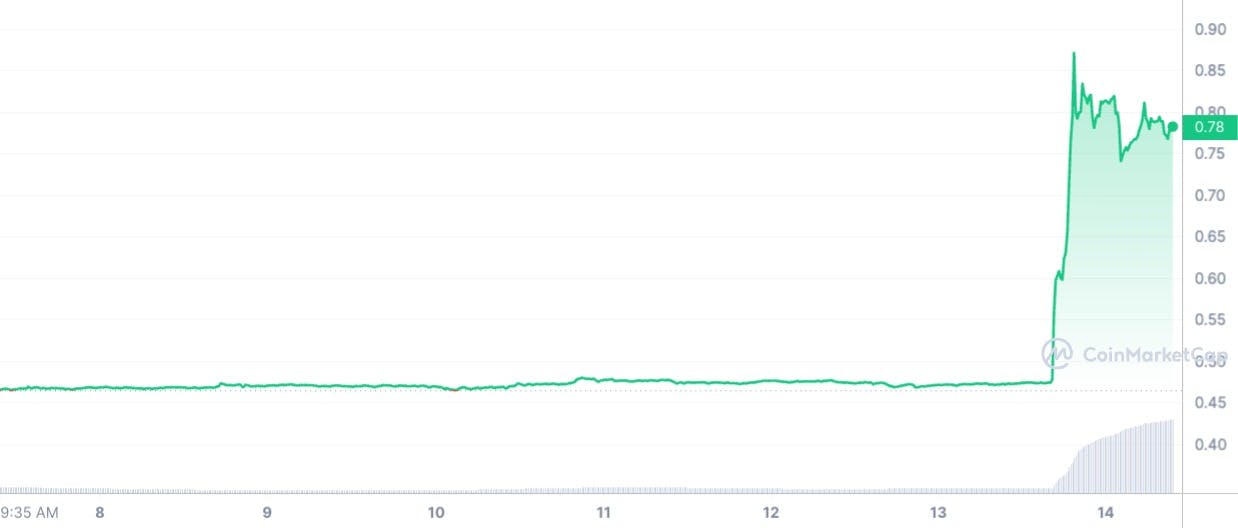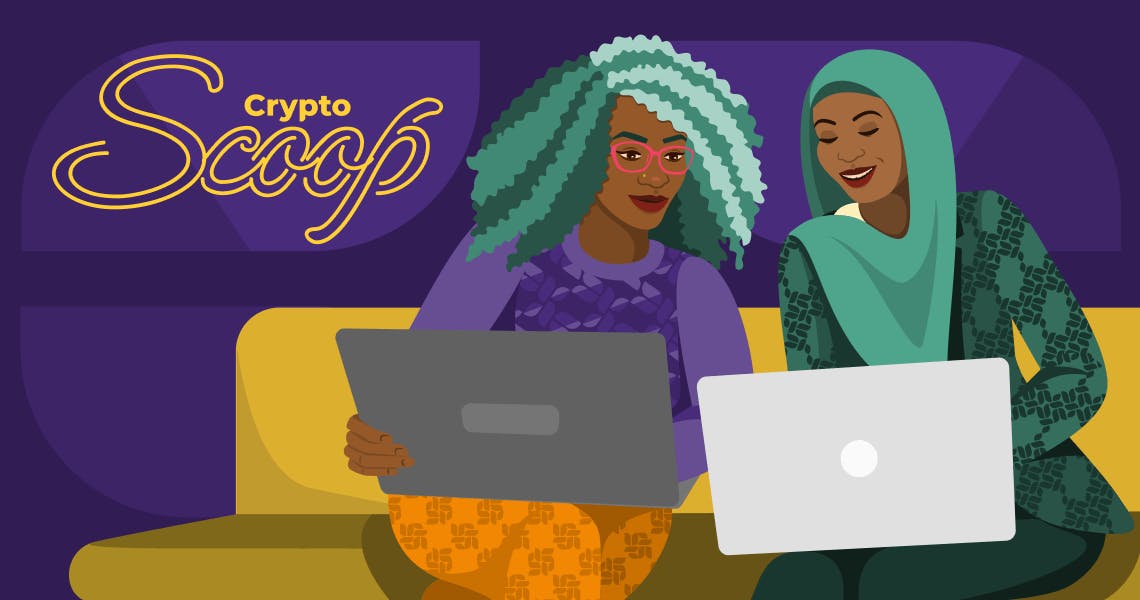XRP Wins Lawsuit Against SEC And Becomes 4th Largest Cryptocurrency
Crypto Scoop
Back to blog
Yellow Card
July, 14 2023
Crypto Scoop
On this page
XRP becomes 4th largest cryptocurrency; Standard Chartered Bank says BTC will soar to $50,00 by 2023 end.
XRP triumphs in its legal lawsuit against US SEC and spurs a positive market reaction. In this edition of the crypto scoop, we review:
- XRP's position as 4th largest cryptocurrency
- Central Bank's pro-CBDC stance
- Google Play's policy on blockchain apps.

Ripple XRP's Price Chart (Source: Coinmarketcap)
Ripple (XRP) Becomes The 4th Largest Cryptocurrency By Market Cap
Ripple's recent legal victory against securities regulators has sent shockwaves through the cryptocurrency market, leading to a price surge and generating increased investor interest. According to Judge Analisa Torres, Ripple's sale of XRP to the general public and its token distributions do not qualify as an offer and sale of an investment contract. As a result, she ruled that Ripple is not a security as claimed under SEC.
Bitcoin, the leading cryptocurrency, experienced a 4.3% gain within 24 hours, pushing its market value to $31,594.31 with a market cap of $613.8 billion. Ethereum also attained a 3-months high as it soared past the $2,000 benchmark.
Ripple's native token, XRP, emerged as the biggest winner, skyrocketing by an astonishing 73% within 24 hours, resulting in a market cap of $42.6 billion and positioning it as the fourth-largest cryptocurrency by market capitalisation. Coinbase, which had delisted Ripple XRP about 3 years ago, announced that it would relist XRP on its platform. Cardano (ADA), Solana (SOL), and Polygon(MATIC) crypto assets in a different legal case by the SEC also recorded notable gains.
Furthermore, Standard Chartered, a prominent British banking institution, announced its Bitcoin price forecast, predicting that the cryptocurrency could reach $50,000 by the end of this year and surge to $120,000 by the end of 2024.
In light of Ripple's legal victory and the subsequent market response, Representative Ritchie Torres, a Democrat from New York, has called for independent investigations into the U.S. Securities Exchange Commission (SEC). In his letters to the SEC's Inspector General Deborah Jeffrey and the Government Accountability Office's Comptroller General Gene Dodaro, Rep. Torres raises concerns about the SEC's approach to digital assets, referring to it as "haphazard and heavy-handed.
Bank of International Settlements (BIS) Reports That Central Banks Are Increasingly Pro-CBDC
The Bank of International Settlements (BIS) recently conducted a survey among 86 central banks, revealing a growing interest and commitment towards Central Bank Digital Currencies (CBDCs).
According to the BIS survey, an overwhelming majority of central banks, 93%, are actively researching CBDCs as part of their strategic agenda. Moreover, more than 50% of these banks have progressed to the stage of substantial development, with pilot projects already underway.
While only a few countries, including Nigeria, Jamaica, and The Bahamas, have launched retail CBDCs, the report suggests that other central banks could soon follow suit. In fact, 18% of the surveyed banks expressed intentions to introduce retail national digital currencies in the near future.
Google Play Embraces Blockchain Content in Updated Policy for Android App Store
Google Play, the Android app store, has updated its terms to allow for the inclusion of blockchain content. This move signifies a more open policy compared to Apple's App Store. The revised policy aims to facilitate blockchain-based digital content transactions within apps and games.
Developers must declare when their apps enable users to purchase or earn cryptocurrencies and blockchain assets while complying with regulations for buying, selling, and trading these assets. The policy imposes restrictions on apps utilising Non-Fungible Tokens (NFTs), requiring them to be registered as gambling, games, or contest apps, or avoid exchanging NFTs for money altogether. The updated policy also prohibits on-device crypto mining apps but allows apps that facilitate remote crypto mining management.
Disclaimer: This article is for information purposes only and should not be construed as legal, tax, investment or financial advice. Nothing contained in this article constitutes a solicitation, recommendation, endorsement or offer by Yellow Card to buy or sell any digital asset. There is risk involved in investing or transacting in digital assets, please seek professional advice if you require one. We do not assume any responsibility or liability for any loss or damage you may incur dealing with digital assets. For more information on Digital Asset Risk Disclosure please see - Risk Disclosure.



